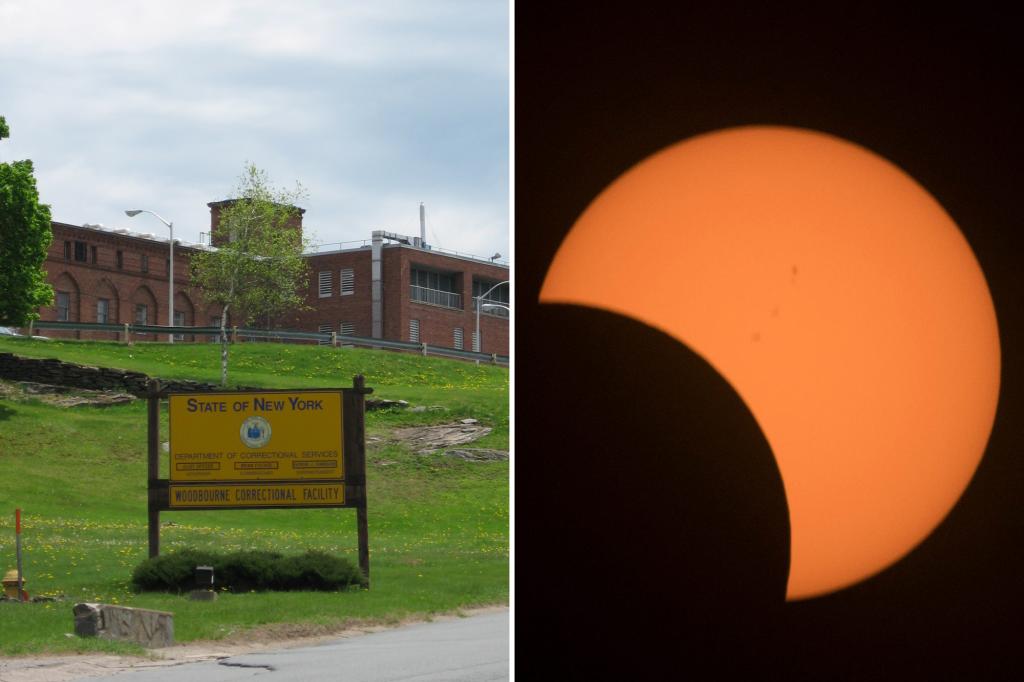Six inmates in New York are suing the state corrections department over the decision to lock down prisons during the upcoming total solar eclipse on April 8. The inmates argue that the lockdown violates their constitutional rights to practice their faiths by preventing them from taking part in a religiously significant event. The plaintiffs include individuals with various religious backgrounds such as Baptist, Muslim, Seventh-Day Adventist, Santeria practitioners, and an atheist. They believe that the solar eclipse is a rare, natural phenomenon with great religious significance and warrants gathering, celebration, worship, and prayer.
One of the named plaintiffs, an atheist, initially received permission to view the eclipse using provided glasses before the lockdown was issued. However, when four other plaintiffs sought permission, they were denied by prison officials who claimed that the solar eclipse was not considered a holy day for their religions. The sixth inmate did not receive a response to his request for permission to view the eclipse. The corrections department spokesperson stated that all requests for religious accommodations, including those related to viewing the eclipse, are under review.
The acting commissioner of the department issued a memo on March 11 stating that all state correctional facilities will operate on a holiday schedule on the day of the eclipse. Inmates will remain in their housing units except for emergencies during the eclipse from 2 p.m. to 5 p.m. Visitation at prisons in the path of totality will be canceled, while visitation at other facilities will end at 2 p.m. The department will distribute solar eclipse safety glasses to staff and inmates so they can view the eclipse from their work locations or housing units in prisons in the viewing path.
Communities in western and northern parts of New York, including Buffalo, Rochester, Syracuse, Lake Placid, and Plattsburgh, are expected to have the best viewing of the total eclipse around 3:15 p.m. It will last only a few minutes as the moon passes between the Earth and the sun, blocking the sun and turning day into night. The rareness of the event adds to its religious significance for many, as mentioned in various sacred texts such as the description of similar phenomena during historical events in the Bible and Islamic works. The lawsuit emphasizes the importance of religious freedom and the right of inmates to practice their faiths, even while incarcerated.
Overall, the lawsuit contends that the state’s decision to lock down prisons during the solar eclipse infringes on the constitutional rights of inmates to engage in religious practices. Despite efforts by some inmates to obtain permission to view the eclipse using safety glasses, they were denied due to the event not being considered a holy day. The corrections department’s response to the pending litigation is to review all requests for religious accommodations. The eclipse event holds great religious significance for many different faiths, and the lawsuit highlights the desire of inmates to participate in the communal experience, celebration, worship, and prayer during this rare celestial phenomenon.















